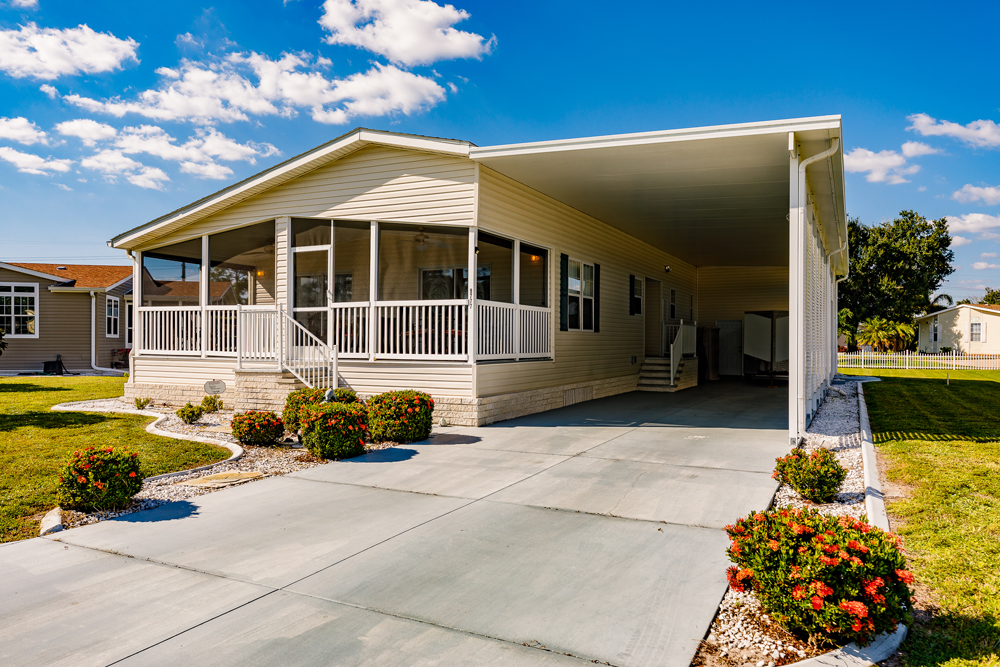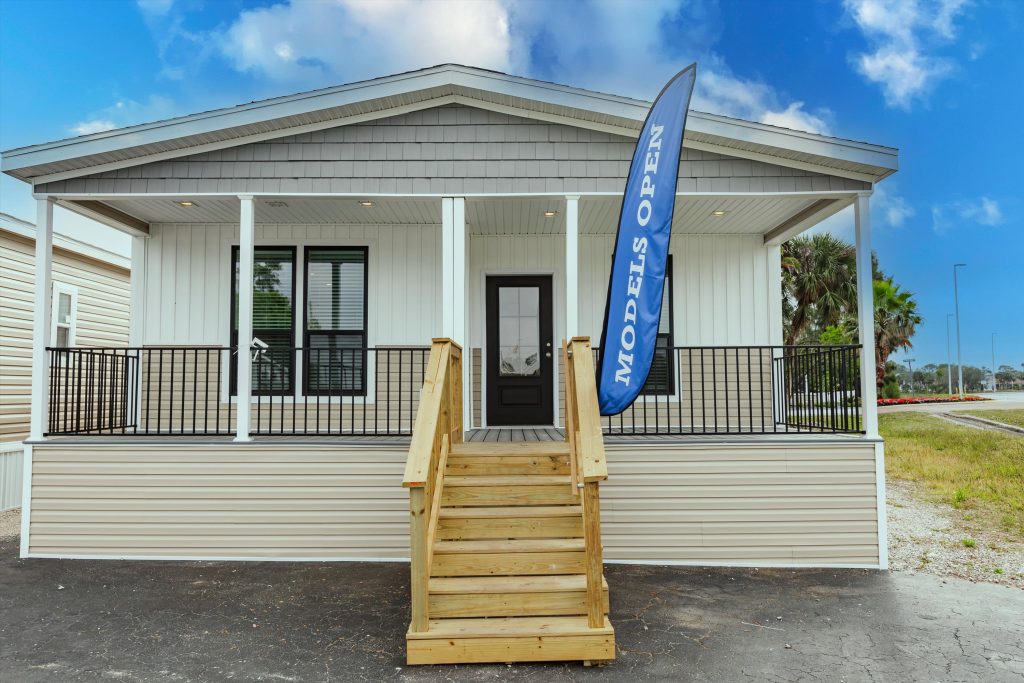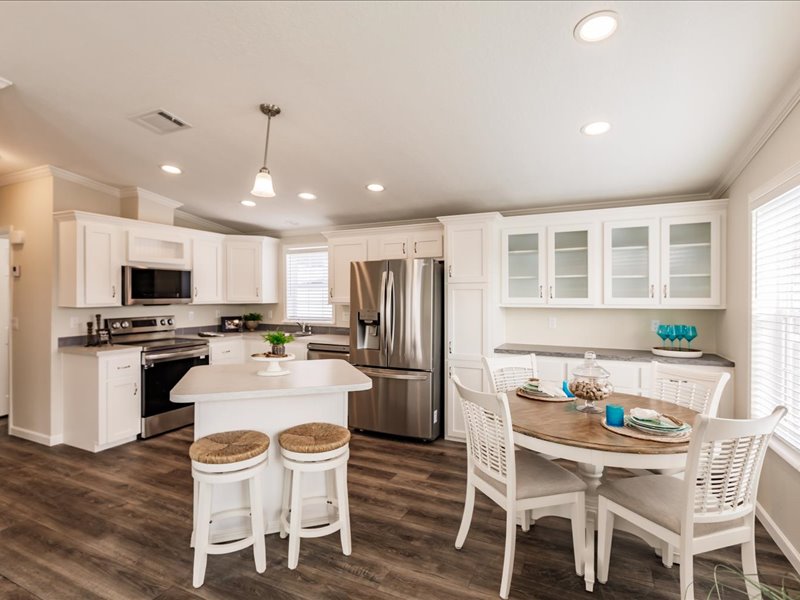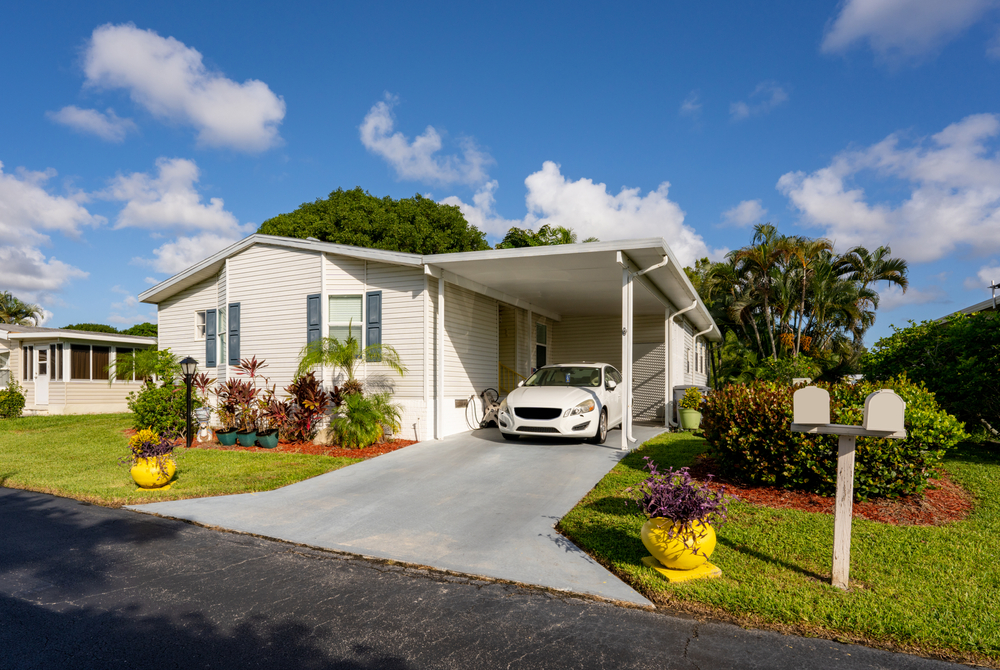
If you’re planning to buy a manufactured home, one of the most important—and often misunderstood—steps is the installation. Whether you’re dreaming of a cozy retreat tucked among the palms or a spacious retirement home near the Gulf, understanding how manufactured home installation in Florida works can help you plan smarter, budget better, and move in with confidence.
Pre-Installation Steps for Manufactured Home Installation in Florida
Before the first concrete pier is set or a single pipe is installed, there are several important pre-installation steps that set the stage for a smooth and code-compliant install.
Surveying and Permitting Requirements
Florida has some of the strictest codes in the country when it comes to building and home installation, especially in coastal and hurricane-prone zones. That’s why it all begins with a site survey and feasibility check. Your installation team will:
- Verify any major needs, such as retaining walls
- Verify property boundaries and setbacks
- Identify flood zones and elevations
- Evaluate soil conditions for foundation planning (if applicable)
- Help determine home size
Once the survey is complete, your contractor must obtain the necessary local and state permits. This typically includes:
- Building permit (foundation permit if applicable)
- Septic and well permits (if applicable)
- HOA approval if needed
Permitting can take several weeks, especially if your property is in a high-velocity wind zone or if environmental approvals are needed. A company like LeeCorp Homes handles this entire process for you, ensuring that everything complies with Florida Administrative Code (FAC) Chapter 15C and HUD installation standards.
Foundation and Setup Process in Florida
Once permits are approved and the site is prepped, your manufactured home is ready for delivery and installation. Florida’s regulations dictate exactly how homes should be anchored and supported, and this stage is critical for safety, insurance, and longevity.
Pier, Beam, and Slab Foundations Explained
There are several types of foundation systems allowed in Florida, and the best one for you depends on your site conditions.
1. Pier System (Most Common)
This is the standard foundation system used for most manufactured homes in Florida. It involves:
- Installing concrete footers (if applicable)
- Setting precast concrete piers for home placement
This system allows for easy leveling, provides good air circulation beneath the home, and is cost-effective.
2. Slab-on-Grade Foundation
A concrete slab foundation offers enhanced stability and protection. This type of foundation:
- A full concrete pad to be poured before delivery
- Anchors the home directly into the slab with tie-downs
This type of installation for a manufactured home is not typical, but some parks require it, or it can be a custom request.
3. Stem Wall Foundation
This hybrid approach creates a perimeter wall around the base of the home, offering:
- A traditional “home-like” appearance
- Added storage or service access
- Protection from critters and wind-borne debris
Stem wall foundations are great if you’re installing on sloped terrain or want a more finished aesthetic. These foundations can have dirt, gravel, or concrete floors.
Once the foundation is in place, your home will be delivered in sections (commonly two halves for a double-wide) and set using cranes or specialized hydraulic jacks. The halves are then joined together, sealed at the marriage line, and fastened to the foundation according to code.
Anchoring is essential in Florida due to hurricane risks. Wind zone ratings—especially in coastal areas—require:
- Tie-down straps driven deep into the ground that resist uplift and lateral movement
Final Utility Hookups for Manufactured Home Installation in Florida
After the home is safely anchored and sealed, it’s time to connect all the utilities and make it truly livable. This is the final but critical phase of the installation.
HVAC, Plumbing, and Electrical Connections
Proper utility connections require licensed professionals and strict compliance with both HUD and Florida Building Codes.
HVAC (Heating, Ventilation, and Air Conditioning)
Florida’s heat and humidity make a high-performing HVAC system essential. During installation, HVAC professionals will:
- Install the exterior condenser unit
- Connect supply and return ductwork beneath the home
- Seal all ducts to prevent energy loss and moisture intrusion
- Install thermostats and test the system
Plumbing
Plumbing connections include:
- Tying the home’s plumbing system into the well or municipal water supply
- Hooking up to a septic system or city sewer
- Testing all drain and waste lines for leaks
In some areas, especially rural locations, your installation team may need to install a new septic tank and drain field, which requires its own permit and inspection. LeeCorp Homes provides full septic installation as part of our full-service approach.
Electrical
Electricians will:
- Connect the home to utility poles or underground service
- Verify surge protection and GFCI outlets are up to code
Most manufactured homes are pre-wired at the factory, but final connections—including exterior lighting, meter boxes, and outdoor receptacles—must be completed on-site.
Final Inspections, Skirting, and Move-In
Once all systems are connected, your home undergoes a series of final inspections by county officials or third-party inspectors. These inspections ensure:
- Compliance with wind and anchoring codes
- Proper electrical and plumbing functionality
- Fire safety and egress compliance
After passing inspection:
- Skirting is installed around the perimeter to protect against pests and provide a finished appearance.
- Steps, landings, etc., are built to code for all contracted entrances.
- Optional features like driveways, carports, sunrooms, patios, and landscaping are added if contracted.
Once all this is complete, we then obtain your certificate of occupancy (CO), we order your elevation cert and final inspection, and you’re ready to move in!
Budgeting for a Florida Manufactured Home Installation
So, what should you expect in terms of cost? Installation costs vary based on:
- Site accessibility and location
- Foundation type (pier vs. slab vs. stem wall)
- Permitting fees and utility setup
- Lot improvements like grading, septic, well, and driveways
- Custom features like garages, lanais, steps, decks, sheds, etc.
Working with a company like LeeCorp Homes ensures no surprises. We provide simple, transparent pricing and handle all aspects of the project, from groundwork to final touches.
Why Choose LeeCorp Homes?
If you’re considering a manufactured home in Southwest Florida, LeeCorp Homes is ready to help. A family-owned business founded in 1983, LeeCorp Homes is committed to quality craftsmanship and ensuring you get a home you can be proud of.
No matter your lifestyle, LeeCorp Homes can create a home that’s right for you—whether you’re thinking of a simple single-wide hideaway, a waterfront stilt home, or a three-bedroom home designed to welcome friends and family. Our design experts work with you to create a floor plan that fits your needs while maximizing lot features like lakefronts, golf views, or retirement park amenities.
As specialists in manufactured homes, LeeCorp Homes knows how to help you get the most from your home, from ensuring your home meets local zoning and building requirements to strategic siting that takes full advantage of your surroundings. Need ADA compliance for accessibility? We’ve got you covered.
If you want to install a home on your own property, LeeCorp Homes offers full site development services—everything from grading to well and septic system installation. We also provide state-of-the-art replacement homes if you’re ready for an upgrade from an existing manufactured home.
We make the homebuilding process simple by taking care of everything. From permitting to utility connections, LeeCorp Homes oversees every step to ensure everything’s perfect for you. We offer:
- Transparent pricing
- Skilled installation crews
- Customizable options
- Landscaping, garages, and sheds
- Exceptional service from start to finish
Ready to Start Your Manufactured Home Journey?
LeeCorp Homes is here to make it easy. Let our experienced team guide you through every step of manufactured home installation in Florida—from lot prep and permitting to your first sunset on the porch.
Browse our home options, explore floor plans, and schedule a consultation today. Your dream home in Southwest Florida is just a call away!




